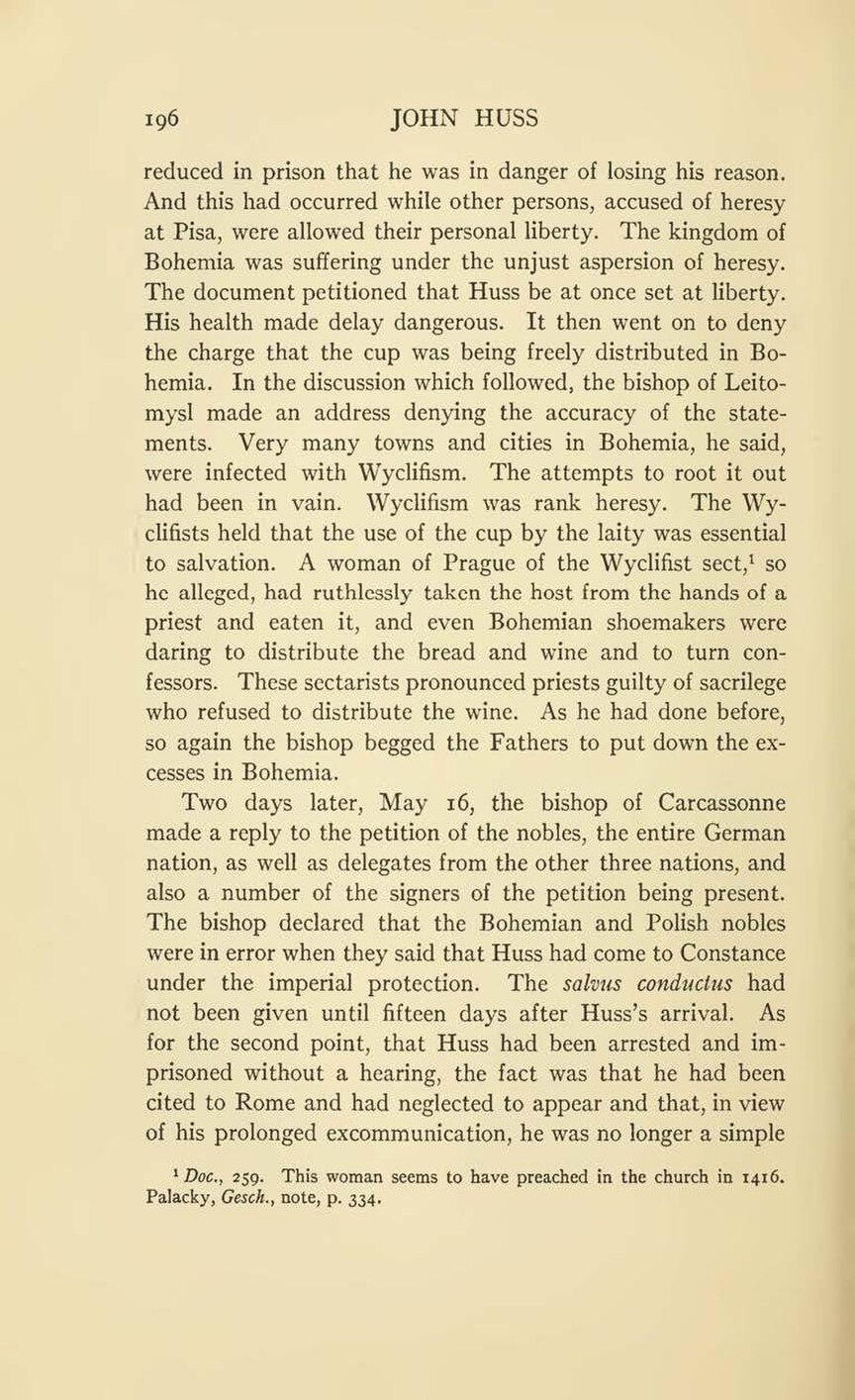reduced in prison that he was in danger of losing his reason. And this had occurred while other persons, accused of heresy at Pisa, were allowed their personal liberty. The kingdom of Bohemia was suffering under the unjust aspersion of heresy. The document petitioned that Huss be at once set at liberty. His health made delay dangerous. It then went on to deny the charge that the cup was being freely distributed in Bohemia. In the discussion which followed, the bishop of Leitomysl made an address denying the accuracy of the statements. Very many towns and cities in Bohemia, he said, were infected with Wyclifism. The attempts to root it out had been in vain. Wyclifism was rank heresy. The Wyclifists held that the use of the cup by the laity was essential to salvation. A woman of Prague of the Wyclifist sect,[1] so he alleged, had ruthlessly taken the host from the hands of a priest and eaten it, and even Bohemian shoemakers were daring to distribute the bread and wine and to turn confessors. These sectarists pronounced priests guilty of sacrilege who refused to distribute the wine. As he had done before, so again the bishop begged the Fathers to put down the excesses in Bohemia.
Two days later, May 16, the bishop of Carcassonne made a reply to the petition of the nobles, the entire German nation, as well as delegates from the other three nations, and also a number of the signers of the petition being present. The bishop declared that the Bohemian and Polish nobles were in error when they said that Huss had come to Constance under the imperial protection. The salvus conductus had not been given until fifteen days after Huss’s arrival. As for the second point, that Huss had been arrested and imprisoned without a hearing, the fact was that he had been cited to Rome and had neglected to appear and that, in view of his prolonged excommunication, he was no longer a simple
- ↑ Doc., 259. This woman seems to have preached in the church in 1416. Palacky, Gesch., note, p. 334.
